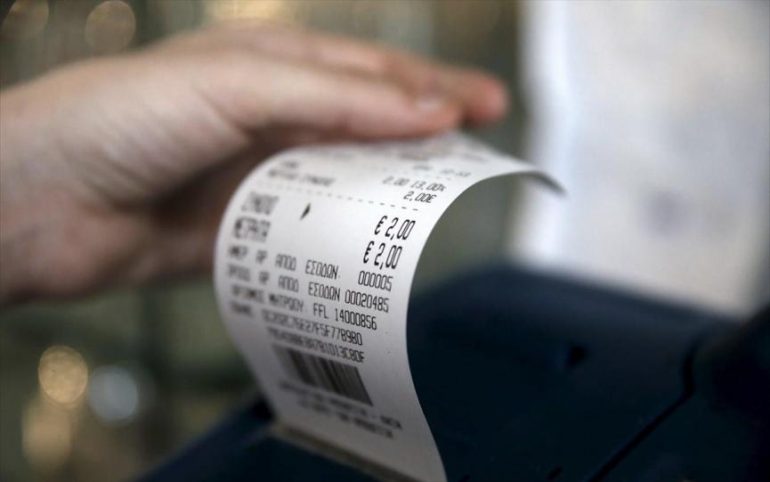For which goods and services is it possible to reduce VAT according to the proposal of the Economic and Financial Affairs Council (ECOFIN).
The update of the VAT rate regulations decided yesterday by ECOFIN yesterday in Brussels enables states to reduce and even eliminate VAT rates on specific goods, which are mainly related to the shift to green energy, health, safety and digitization.
Under the directive, states will now be able to apply two reduced rates, with the lowest at 5%, to goods and services relating to up to 24 of the categories listed in the updated annex to the European VAT directive.
Countries will also be able to apply a much reduced rate, less than 5%, or eliminate VAT completely on goods falling into 7 categories of those that have been made public and meet basic needs. a zero rate, for up to seven categories on the list that meet basic needs.
It is emphasized, however, that all Member States should be treated equally and should therefore be treated equally in the context of reduced rates, which should, however, remain an exception to the standard VAT rate.
Emphasis is placed on solar panels
The new directive states that solar panels should be included among these seven points in line with the Union's Environmental Commitments on Carbon Emission Exemption and the Green Agreement, and to provide Member States with the opportunity to energy sources with reduced VAT rates.
This is proposed in order to support the transition to the use of renewable energy sources and to strengthen the Union 's energy self - sufficiency, in order to allow Member States to improve end - users' access to green energy sources.
For which goods and services is it possible to reduce VAT?
According to Annex 3 of the new ECOFIN directive, VAT has been amended or added and can be reduced in the following categories:
- Pharmaceutical products used for medical or veterinary purposes.
- Medical equipment or medical devices or medical protective equipment as well as for the repair of related products.
- Transport of passengers or goods accompanying them, such as their luggage or bicycles or vehicles.
- Supply of books, magazines or newspapers either by physical means or electronically.
- Tickets for performances, theaters, parks, cinemas, etc.
- Receiving radio, television and internet broadcasting services
- Construction, repair, renovation, and erection of dwellings, within the framework of social policy, as defined by the Member States.
- Construction and renovation of public and other buildings used for activities of public interest.
- Supply of goods and services of a kind normally intended for agricultural use but excluding capital goods such as machinery or buildings
- Admission to sporting events or access to the live broadcast of these events or both.
- Supply of goods and services by occupational welfare or social security organizations as defined by the Member States
- Provision of services related to sewerage, street cleaning, waste collection and treatment or recycling of waste
- Supply of repair services for home appliances, footwear and leather goods, clothing and household linen
- Supply and installation of solar panels in and adjacent private homes, housing and public and other buildings used for activities of public interest;
- Live equidae and live equidae services;
- Supply of electricity, district heating and cooling and biogas produced from the raw materials listed in Part A of Annex IX to Directive 2018/2001; supply and installation of low-efficiency, high-efficiency heating systems that meet the emission reference criteria (PM). set out in Annex V to Commission Regulation (EU) 2015/1189.
- Live plants and other floricultural products, including bulbs, cotton, roots or flowers, and ornamental foliage.
- Children's clothes and shoes; supply of child car seats.
- Supply of bicycles, including electric bicycles. rental and repair services of such bicycles;
- Supply of works of art, collectibles and antiques listed in Annex IX, Parts A, B and C
- Legal services provided to persons with a contract of employment and unemployed in labor courts and legal services provided under the legal aid system as defined by the Member States
- Tools and other equipment of a kind normally intended for use in rescue or first aid services when provided to public bodies or non-profit organizations active in the civil sector or Community protection
- Provision of services related to the operation of lighthouses, lighthouses or other navigation aids and rescue services, including the organization and maintenance of the lifeboat service.
It is noted that in the relevant legislation of the Union remain unchanged the first two categories related to food and beverages (excluding alcoholic products) and water supply.
This reform is extremely important for the Member States, as VAT is a significant and growing source of EU revenue and equates to more than € 1 trillion, or 7% of EU GDP, yesterday's directive said.
It is also said that this change was deemed necessary, as 2022 marks the 30th anniversary of the EU's common VAT rules, agreed by all Member States that were part of the Union in 1992, and which are now obsolete and too restrictive. .
See the original instruction here (link is external)
It is noted that the ECOFIN proposal will be passed in the coming days by the Eurogroup where it will be judged whether the relevant authority will be given to the Member States to make the mentioned conversions.
